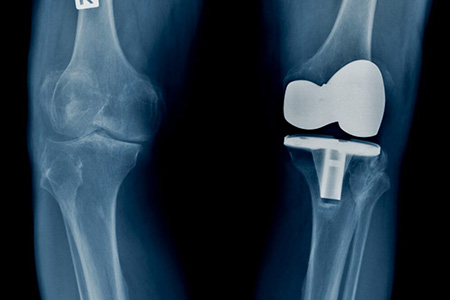Joint pain can be a debilitating condition that hinders our daily activities. But when does it reach a point where joint replacement becomes a necessary consideration?
Firstly, chronic joint pain occurring over a prolonged period, especially in the hips, knees, or shoulders, may indicate the need for joint replacement. If the pain persists, despite various treatments such as medication, physical therapy, or minor surgical procedures, it might be time to consider joint replacement.
Moreover, decreased mobility or stiffness in joints, impacting your daily routine, can also signal the necessity for a joint replacement. Are you finding it tough to walk, sit, climb stairs, or perform routine activities? Your quality of life is crucial, and if these symptoms persist, joint replacement surgery might be the solution.

Lastly, a significant determinant is the progression of diseases like osteoarthritis or rheumatoid arthritis. If your doctor identifies an advanced stage where the joint cartilage has worn away, replacement surgery could be the next step, as it can help you get back to a healthy, active lifestyle.
Data Determining Joint Replacement Success
While it’s important to understand when to consider joint replacement, it’s equally crucial to know the data that determines the success of such a procedure.
- Patient’s Overall Health: Studies show that patients without severe comorbid conditions have higher success rates post-surgery. Conditions like obesity, diabetes, or heart disease may complicate recovery.
- Age of the Patient: Younger patients tend to recover faster and have lower complications. However, the success of joint replacement surgery has been seen across a wide age spectrum.
- Quality of the Prosthetic Joint: The durability and design of the artificial joint play a significant role in the success of the surgery. Hence, it’s important to choose high-quality implants.
- Skill and Experience of the Surgeon: A surgeon’s experience and skill level greatly influence the success of joint replacement surgery. A seasoned surgeon can anticipate and manage complications effectively.
- Rehabilitation and Post-operative Care: Strict adherence to rehabilitation protocols and quality post-operative care also contribute to positive surgical outcomes.
- Patient’s Commitment: Ultimately, the patient’s commitment to follow post-surgery instructions, engage in physical therapy, and maintain a healthy lifestyle can significantly impact the success of the replacement surgery.
In conclusion, joint replacement surgery can significantly improve quality of life for those suffering from severe joint pain. However, it’s important to be well-informed about the timing and potential success factors involved in the procedure. Always consult with your healthcare provider to make sure you’re making the best decision for your unique situation.
Dr. Bagwe is a leading orthopedic surgeon specializing in ankle and foot reconstruction and joint replacement. If you are looking for an orthopedic surgeon near you then look no further. Dr. Bagwe is an industry leader when it comes to foot and ankle surgery doctors in St. Louis. Dr. Bagwe and his friendly and professional team is ready to welcome you and tell you everything you need to know.
Reach out and contact us today.






